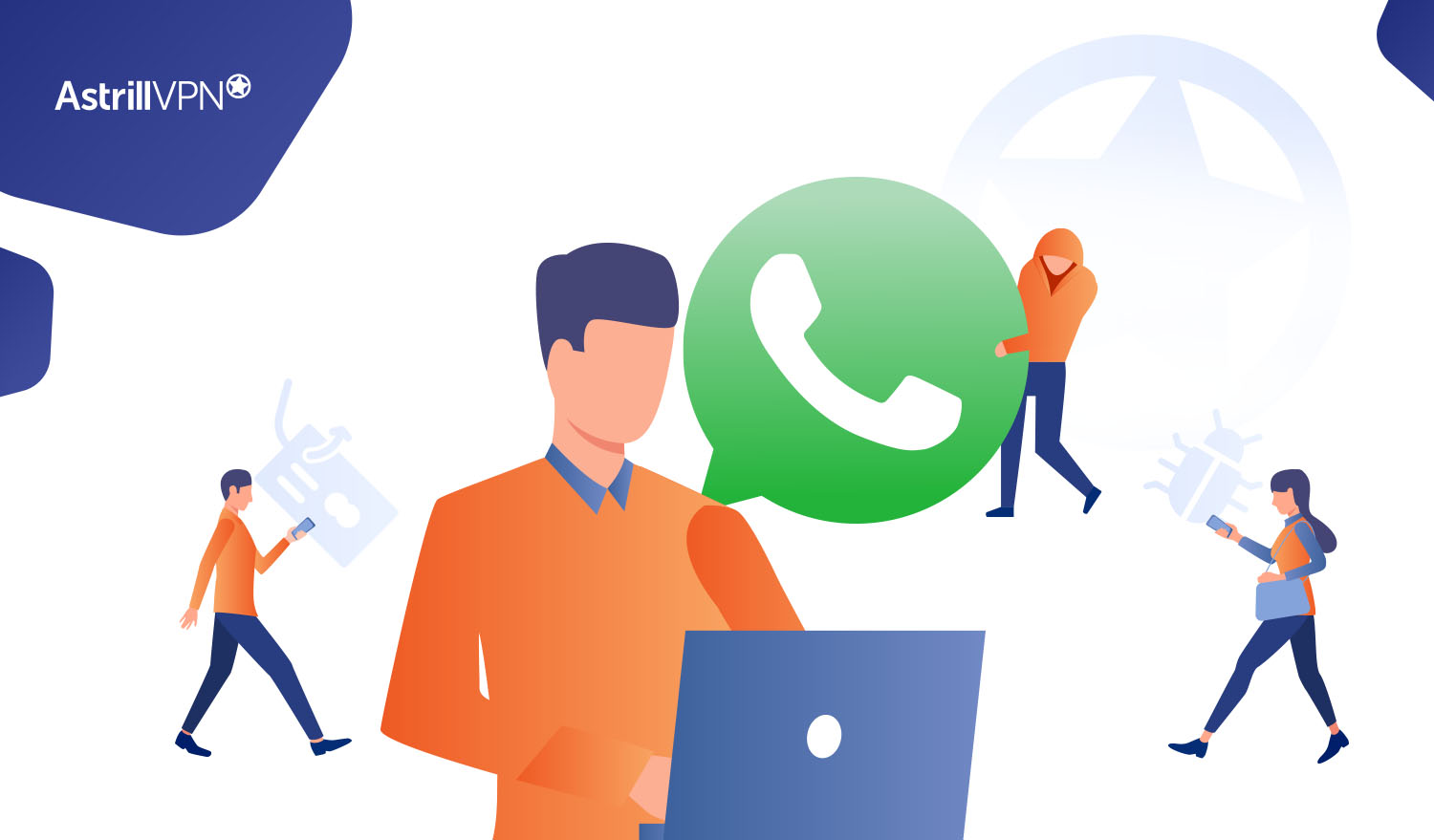Don’t Get Hooked! Identifying Different Types of WhatsApp Scams

Arsalan Rathore

Table of Contents
Introduction
Have you ever received a message via WhatsApp that seemed a bit off? In recent years, WhatsApp scams have become increasingly popular amongst scammers looking to exploit unsuspecting victims. These scams are becoming more and more prevalent. But there are still ways to protect yourself from becoming their next victim. In this article, we’ll look at the different types of scams commonly found on WhatsApp and how to identify them so you can stay one step ahead of the scammers.
What Are WhatsApp Scams?
We know you love spending time on WhatsApp, but before you click or tap on any links that pop up in any chat, there is a massive chance that you might be caught in a scam! A WhatsApp scam is any message, link, or post sent through the platform intended to deceive people and take advantage of their trust. It can be anything from a seemingly innocent link or a message claiming to have “exclusive” information or offers.
These scams come in many shapes and forms, so it’s important to know how to spot them when they appear. Here are some of the most common WhatsApp scams out there:
● Identity Fraud
Fraudsters use fake identities and photos to pass themselves off as members of legitimate companies for the purpose of deceiving users into providing their personal information.
● Phishing Links
Whatsapp Phishing is getting common. These phishing links appear to be from trusted sources but are actually malicious websites created for the purpose of stealing personal data such as passwords and credit card information.
● Fake Promotions
These offers look too good to be true, such as “free” rebates, discounts, or gift cards. These links often lead to bogus websites designed to collect information and money.
By recognizing these common types of WhatsApp scams and learning how to spot them, you can protect yourself against unwanted intrusions on your phone.
Why Do Scammers Use WhatsApp?
You might be wondering why scammers have flocked to the WhatsApp platform. It’s not like these people are deprived of other apps on which they can prey on unsuspecting users. The simple answer is that WhatsApp offers convenience and security. It only uses end-to-end encryption meaning your messages and information remain secure while in transit and at rest. It comes with many features, such as group messaging and file sharing. Both make it easier for scammers to reach large groups of people all at once.
But what makes WhatsApp especially attractive to scammers is its ubiquity. With over 1 billion users worldwide and growing, it’s one of the most popular communication tools. This makes it an ideal platform for spreading malicious content quickly and easily.
Common Types of WhatsApp Scams
One of the most common types of WhatsApp scams is the offers scam. You know, the ones that usually offer something huge and amazing like a vacation or a brand new car for free. Here are the three most common WhatsApp scams.

1. Impersonation scam
When someone pretends to be someone they’re not, such as a friend or family member, it is highly likely to be an impersonation scam. They may also pose as a well-known person or as authority figures like a police officer or government employee. Once they’ve gained your trust, they could ask for sensitive information such as your bank account number or credit card details.
2. Bitcoin Scam
Another common scam is the Whatsapp Bitcoin scam. This type of scam takes advantage of the fact that many people don’t understand cryptocurrencies and promises easy money if you invest in it. Don’t be fooled by anyone promising quick riches, as they will likely try to con you!
3. Gifts offers Scam
This type of scam involves fraudsters offering you gifts in exchange for information like your bank details. They might even offer you a huge sum for some personal information. Beware of such scammers.
How to identify WhatsApp scams?
We have discussed some of the common types of WhatsApp scams. It’s time to figure out how to identify them. You can use the same strategies used with email scams and other online frauds:
1. Look Out For Links
Links can be the biggest sign of a scam, so it’s important to look out for them in your messages. Any link that claims to offer a prize is likely part of a scam. Never click on any links in messages from unknown sources.
2. Watch for Suspicious Attachments
Any attachment sent through WhatsApp should raise red flags. Some attachments have malicious software installed that can steal personal information or hijack your device if clicked on. If you don’t recognize the sender, then delete the attachment immediately and contact the sender to verify that they sent it.
3. Verify Who You’re Talking To
Verify their identity before responding if someone sends you a message claiming to be your bank or another official source. Never respond with personal information like credit card numbers or passwords until you’ve confirmed who they are. Only do so over an authorized website or apps such as a banking app or other secure source.
4. Suspicious messages
Be aware of messages that ask for sensitive information or anything that looks like it’s coming from an unauthorized source. Malicious links often come with offers, so double-check the source before clicking on any links.
5. Unexpected redirects
If a link redirects you somewhere unexpectedly, it could be a sign that you’re being scammed. Take this as your cue to keep your personal information safe!
What to Do if You’ve Been Scammed on WhatsApp?
If you’ve already been a victim of a WhatsApp scam, then take the following steps to be on the safe side.
1. Disconnect your accounts
If the fraudster has gained access to your WhatsApp account, disconnect it from all other applications and accounts like Google, Facebook, and banking services for safety.
2. Contact your bank
If money or sensitive information has been stolen, contact your bank or credit card provider immediately. They’ll be able to help you reclaim any stolen funds or reset your card details.
3. Reach out to the authorities
Make sure to report the crime to local law enforcement authorities such as the police, FBI, or IRS so that they can investigate the fraudster. This is important because it helps protect other people from becoming a victim of this kind of scam.
4. Reset your passwords
Reset all your passwords for any accounts connected with WhatsApp and enable two-factor authentication wherever possible for extra security against potential scams in the future.
5. Reporting and Disputing Fraudulent Activity on WhatsApp
Reporting fraudulent activity can be done through your bank directly or by contacting the company responsible. They’ll be able to walk you through steps to dispute any charges and help protect you from further losses.
If a company scammed you via WhatsApp, take screenshots of the conversation and contact their customer service team directly. Let them know what happened and provide the screenshots so they can investigate further and stop other customers from becoming victims.
6. Use a VPN
You can also use a reliable VPN service for further privacy. Astrill VPN offers no logs policy with the best subscription packages. With the features of dedicated IPs, website and app filter, port forwarding, and app available for Android and iOS, you can easily chat with your loved ones with added security.
How to Keep Your Data Secure: Security Tips for WhatsApp Users
It’s important that you know how to protect yourself from WhatsApp scams. Here are some steps you can take to secure your data.
1. Update Your Apps Regularly
Make sure that your installed apps are always updated. This ensures that the latest security patches are in place and working correctly. Some apps may warn users about possible privacy concerns within their settings. Be sure to read these warnings and stay up-to-date with them.
2. Enable Two-Factor Authentication
Set up two-factor authentication for your account if available on the app. This will help protect your data by requiring a unique code each time you log in or access certain features.
3. Use Password Manager
You should also consider using a password manager to remember all of your passwords safely and securely including those used for two-factor authentication. This way, you can protect yourself from WhatsApp scams and enjoy peace of mind while using the popular messaging app.
FAQs About Protecting Yourself From WhatsApp Scams
WhatsApp scams are on the rise, and even the savviest of us can get caught if we’re not careful. It’s essential that you know how to spot a scam, so here are some commonly asked questions about protecting yourself from these malicious links and messages.
1. Can scammers access my personal information or accounts through WhatsApp?
- The answer is yes, but it doesn’t happen very often. If you receive a suspicious message, it’s important to not click on any links within that message as they might be malicious and intended to gain access to your personal accounts or devices.
2. What If I Have Clicked A Suspicious Link Already?
- If you think that you may have clicked on a malicious link, check the security settings on your device. Update any passwords just in case the link was designed to steal data. If the link is attached to messages that claim to offer free gifts, contact the company directly so they can investigate further.
3. How Can I Tell If A Message Is Legitimate?
- Check for spelling mistakes in the message, as this is often a sign of something fraudulent. Contact numbers or emails sent with suspicious offers may not be genuine. Always use trusted sources if you need more help or assistance.
Conclusion
In conclusion, it’s important to stay vigilant when using WhatsApp and not fall for the various kinds of scams out there. Remember to look out for any suspicious messages or links you receive, check the sender’s profile and make sure you’re not giving away personal information. Take extra caution when engaging in activities such as cryptocurrency trading and be wary of any messages or requests you receive. By being aware of common scams, you can protect yourself and your privacy while enjoying the convenience of WhatsApp.

No comments were posted yet